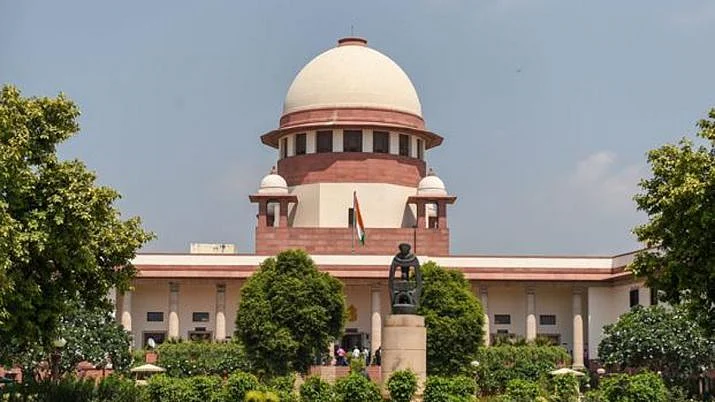How will the Supreme Court order on OBC ‘Reservation’ impact policy and recruitment ?
The Supreme Court overturning its own earlier decision and declaring OBC reservation as merely statutory and not Constitutional may have far reaching implications

A three-judge bench of the Supreme Court has pronounced a very significant and far-reaching judgement on the issue of reservation for the Other Backward Classes (OBCs) virtually overturning the apex court’s own ruling in the Indira Sawhney case of 1993 which upheld the decision of the V P Singh government of 1990 granting 27 per cent reservation to the OBC castes as per the Mandal Commission report, as constitutional.
The bench comprising Justice A M Khanwilkar, Justice Indu Malhotra and Justice Ajay Rastogi, ruling on a petition challenging Section 12 (2-C) of the Maharashtra Zilla Parishads and Panchayat Samitis Act, 1961 which mandated that the state should provide for 27 per cent reservation to OBCs, held that the OBC quota is only “statutory”, unlike the “constitutional” reservation for the Scheduled Castes and Scheduled Tribes (SCs and STs).
While striking down the elections of several OBC members of the Zilla Parishads and Panchayat Samitis of Washim, Akola, Nagpur and Bhandara districts of Maharashtra under the OBC reservation quota, the court held that the State Election Commission (SEC) of Maharashtra transgressed its powers by granting 27 per cent reservations to the OBC candidates in these districts because together with the SC/ST quota the total number of reserved seats in these zilla parishads and panchayat samitis went beyond the limited quota of 50 per cent reservation for all categories. Consequently, while quashing the EC notifications providing for some reserved seats for OBC candidates, it pronounced that the OBC candidates who won the polls on such reserved seats, “are declared as non est in law,” adding that the “the vacancy of seats(s) caused on account of this declaration be forthwith filled up by the State Election Commission.”
Thus, wherever the seats were so limited that the reservation for the SC/ST alone filled up the 50 per cent quota, then no seats could be reserved for the OBC candidates at all. In effect the Supreme Court held that the whole reservation for the OBCs was merely “statutory’ and was not protected by the Constitution. In other words, the government of the day was fully empowered to scrap the OBC reservation by simply amending the law because it had no constitutional guarantee.
Already this government has been systematically subverting the OBC and even SC/ST reservations in educational institutions and also many government bodies, mostly in BJP ruled north Indian states. For instance, till the UPA government days, the reservation for the teaching staff in universities and other higher education institutes was decided each year on the basis of total number of vacancies notified in the institute at the beginning of the academic session.
But that has now been altered and now it is decided separately for each department. Thus, if for instance in the coming academic session of Delhi university the English department has only one vacancy, it will remain Unreserved, even if the total number of vacancies is 100. Also if these were two, then one may go to unreserved category, and the second to the SC/ST and none to the OBC. In this situation, each department would notify its own vacancies and subtly keep these largely confined to unreserved categories and thus surreptitiously subvert the reservation provision in these institutions which has been going on for last couple of years.
This judgment while meeting the long pending demand of the Unreserved category to do away with OBC reservation to start with, further strengthens the case for scrapping reservation for the reserved category all together. Meanwhile in the latest move the Haryana government has decided to reserve 75 per cent of all jobs, both in the government and private sector, where the employee’s salary is less than 50,000 for only those bona fide domiciled in Haryana. This has already been implemented by the Jagan Mohan Reddy government in Andhra Pradesh and even challenged in the Supreme Court. But the court has yet to take a view on that.
On the other hand, there is a concerted and well publicised move to open up jobs, purchase of land and settle in Jammu and Kashmir. Former Union minister Vijay Goel had put hoardings outside his bungalow and Haryana chief minister Manohar Lal Khattar had announced this in public meetings that securing jobs and settling in J&K, forbidden to outsiders before scrapping Article 370 and 35A of the Constitution is now freely available to all those not domiciled in J&K.
The restriction under Art. 370, 371, 371 (a-g) were placed by the framers of our Constitution to protect and preserve the flora, fauna and distinct character of certain regions like Kashmir, North Eastern states and even certain other hilly areas from the land sharks of the mainland. The BJP government has proudly undone that. The matter of scrapping 370, 35A is pending before the apex court for close to two years now and it is still wondering when and why it should deliberate on this matter.
Follow us on: Facebook, Twitter, Google News, Instagram
Join our official telegram channel (@nationalherald) and stay updated with the latest headlines
